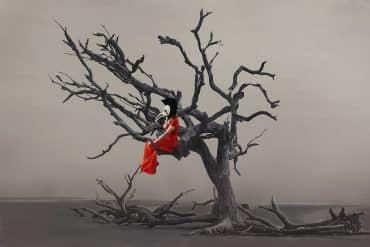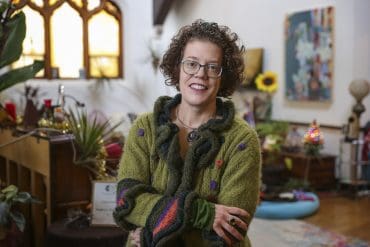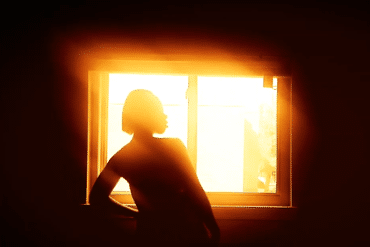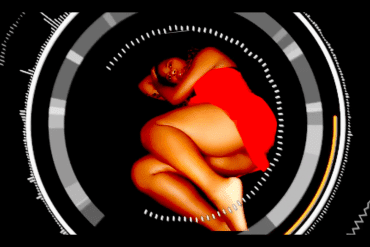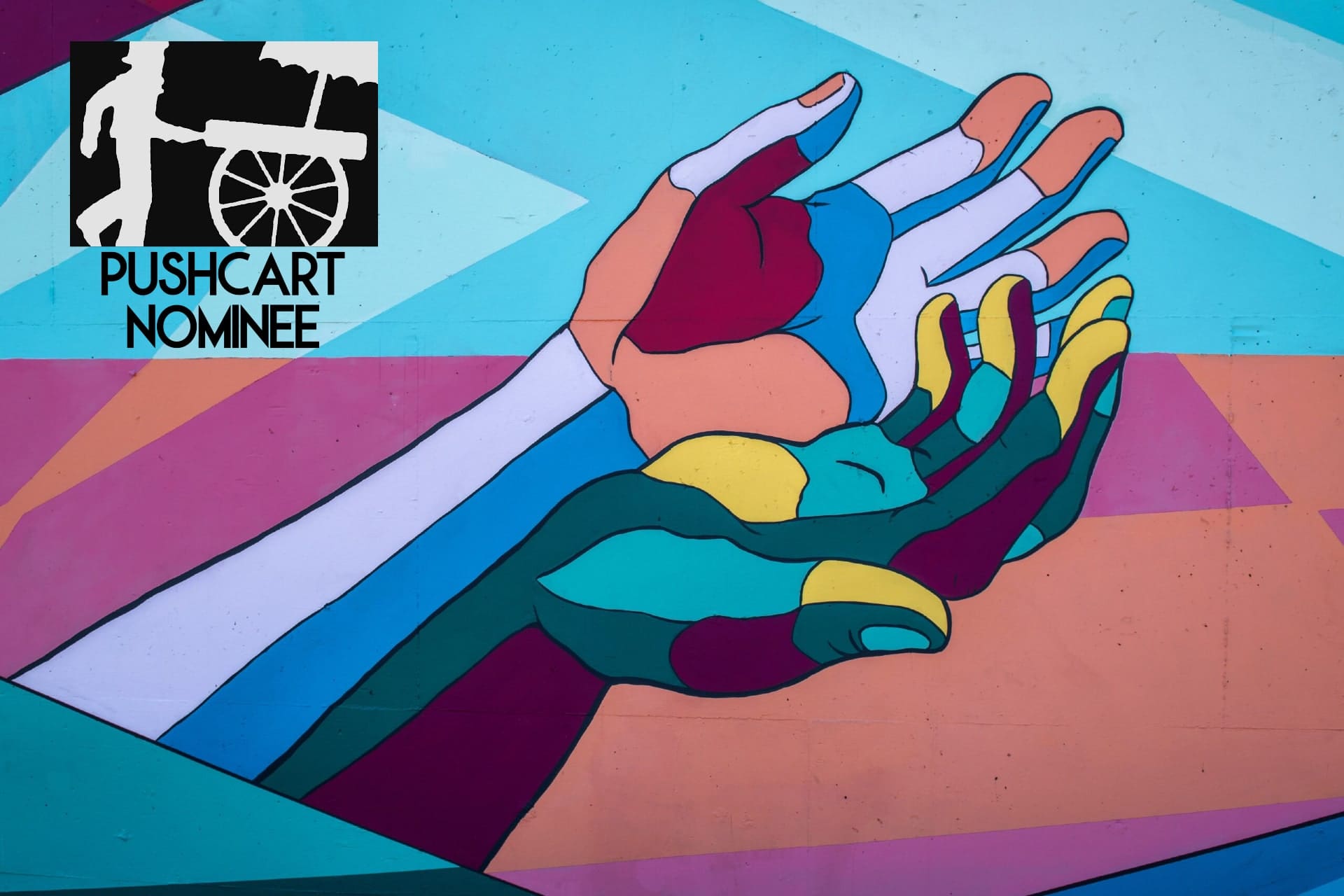A Quest for Social Justice: Notes on an Encounter
Author’s Memo

“A Quest for Social Justice: Notes on an Encounter” continues my accounting of, and critical reflection on, the ethical and political dimensions of having been falsely accused of sexual assault online. A prior essay, “Autoethnography of the Bad Thing” [The Journal of Autoethnography (2021) 2(3)], focuses on the immediate effects of the event. This piece, by sharing a couple of anecdotes related to on-the-street activist work seeks to offer a careful, critical yet caring consideration on the role of allies in political struggles. It attempts to do this by working through and evoking, hopefully, feelings of generosity and understanding in highly divisive situations.
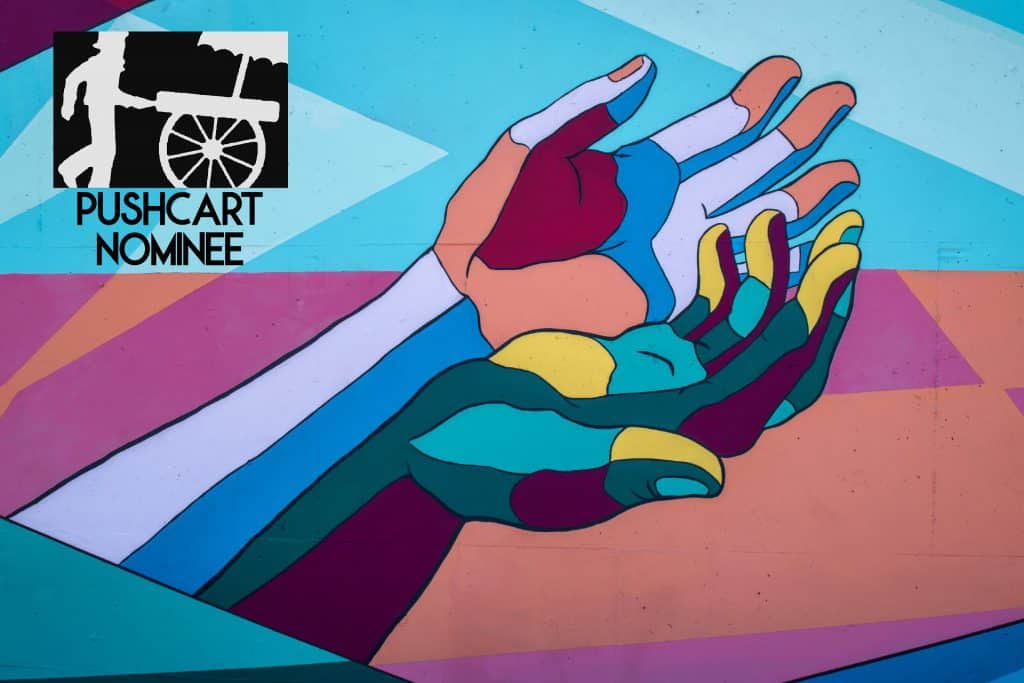
1
It is fundamental to take responsibility for the social change we want to bring about in this anguish and pain ridden world we inhabit. We don’t all have to inhabit the same body, nor live in the same hemisphere to feel the same pain or join the struggle…[i]
I’m paraphrasing some of the closing remarks in an article published by the young man who just yesterday veered his car into our lane while the female passenger yelled “rapist” out the window. I was driving my partner’s car, she was in the passenger seat, and our two-year-old was in his car seat in the back. I skidded over to the right lane a little bit, regained control and kept up to speed with the couple so we could get a good look at them and the license plate.
The young man, in his article, shares his feminist origin story: After his parents’ divorce, the dad moves to Florida; mom struggles to provide for her children. Thanks to her loving struggle, the children flourish. I know this story, because while the author and I do not inhabit the same body, I feel the pain and the love when he writes [and I’m paraphrasing again]: I remember seeing that figure in my mother, with admiration for her sacrifices, including her decision to dedicate herself exclusively to mothering, opting not to pursue new romantic relationships.
My feminist origin story is similar: After my parents divorced, my dad and I cut all ties; my mom provided. Thanks to her loving dedication, her only son flourished. Plus, the young man and I have a few feminist theorists and writers in common: bell hooks, Sara Ahmed, and Audre Lorde.
I couldn’t say how long they tailed us for, or if they were just sitting at the red light and happened to casually look over and spot us. I prefer to think it was the latter, because if they were in fact tailing our car, it means that they likely noticed that we were not alone: It’s hard to miss the car seat in the back.
I was able to identify the young man by searching for my name on Twitter. He was one of the many university students who posted about me last year, after a former student shared a video on social media where she falsely accused me of sexual assault.[ii] His most notable tweet was “death to all abusers.” The subsequent Title IX investigation uncovered no evidence to support the claim against me, but ample proof to discredit and/or contradict it. This, unfortunately, has made little if any difference in our daily lives. The story I’m telling here is not the only instance of harassment we’ve experienced over the past year. What makes it noteworthy is this article I found, published in a local feminist newsletter, a month or so before the video came out.
What makes it noteworthy is the young man’s feminist origin story and how it reads so similar to mine. Frankly, it blows me away how our paths—quite literally—crossed. Thus, what I want to know is: if our roles were reversed, and I was the young man at the wheel, would I have turned it to the right? Would I have considered this tiniest of actions—though most serious of threats—important feminist work?
The young man writes: Maybe feminism arrived for me out of pure coincidence, inevitably imposed before my eyes, at the margins of my will…
What makes it noteworthy is the young man’s feminist origin story and how it reads so similar to mine. Frankly, it blows me away how our paths—quite literally—crossed. Thus, what I want to know is: if our roles were reversed, and I was the young man at the wheel, would I have turned it to the right? Would I have considered this tiniest of actions—though most serious of threats—important feminist work?
2
The young man’s article is a sincere, emotional call to allyship. Feminism, he learned from hooks, is for everybody. Everybody’s origin story, he learned from Lorde, depends on somebody else’s struggle in/of/with mothering. It’s incumbent upon each of us, he argues, to comprehend the ways in which patriarchal society, following Ahmed, orients certain bodies and selves to certain types of futures, which require—Lorde again—that other bodies and selves not survive. He, though picked by the system to flourish, has chosen to be an ally to those who are meant to have no future.
It reads like something I would have loved to write when I was a young man. More importantly, it reads exactly like the type of texts I read back then, which offered me the intellectual and ethical tools that have aided me in my feminist formation.
3
It’s 2010 and I’m a graduate student protesting with my classmates in front of the law school. We want to keep the featured speaker in a conference sponsored by the student-run Business Law Journal from gaining entry. He’s the president of a local bank. The school is part of the state university system. The local bank and its president have been instrumental in making the state university adopt fiscal policies detrimental to its social obligation as we, dissenting students, understand it to be. He is not scheduled to talk about the university’s fiscal policies. He is not scheduled to be there on ‘official business.’ He was simply invited by another group of students, who are now pleading with us to let the man—who is waiting in the car—enter the school and give his scheduled talk. We disregard their pleas, as well as deans’ and other administrators’ empty threats, and the car eventually drives away. We win.
I remember feeling like this miniscule gesture was important activist work in the struggle against unjust austerity measures. But mostly I remember myself—and my classmates—feeling angry at the incredulity in the faces of our counterparts, who could not understand how the bank president’s mere presence on campus constituted an affront to the entire university community.
During the pleading stage, they kept insisting on the academic nature of the activity. For them, I gathered, it was a question of context. For us, we sustained, it was a matter of principle.
It is understandable that my being formally cleared of any wrongdoing would not necessarily assuage certain students’ concerns as to the allegations raised against me. Especially when one considers that these were made public in a social media post that went viral.
4
This is Bernice Johnson Reagon, as quoted in Kristie Dotson’s “Radical Love: Black Philosophy as Deliberate Acts of Inheritance” (2013, p. 40), “The thing that must survive you is not just the record of your practice, but the principles that are the basis of your practice.” Dotson turns to Jonhnson Reagon to propose Black feminist philosophy as the willing/willful practice of inheriting. She writes: “Acts of inheriting, here, refers to the activity of stripping, shifting, and re-creating black cultural production to identify theoretical positions and/or orientations” (p. 40).
If I were to strip the particularities of the young man’s turning of the wheel toward our car, what principles would I find? To what political tradition or orientation does his gesture owe itself?
For context: the state university from which I graduated and in which I worked as an adjunct professor is notorious for its questionable administrative practices, which include its handling of sexual harassment and sexual assault complaints under Title IX. As such, it is understandable that my being formally cleared of any wrongdoing would not necessarily assuage certain students’ concerns as to the allegations raised against me. Especially when one considers that these were made public in a social media post that went viral. Especially when one considers that the body I inhabit [white, male, cisgender] is a much more accurate measure of my chances for the future than my political affinities. However sincere these may be.
What I mean to say is that many students were and continue to be angry.
I wonder: Is anger a principle?
Is anger what I encounter when I strip the particularities of the young man’s gesture? Is it anger at me or at the institution that allows for events like the one I was falsely accused of to occur with impunity? Does he turn menacingly toward us because he cannot effectively, or cannot in actuality afford to turn against the institution? Do I, as a feminist, have the responsibility to recognize the young man’s limited sphere of action within the larger context of institutional negligence in attending to sexual assault, and thus must make an effort to understand his action toward me and my family? Or do the particularities of my case matter and does he, as a political actor, have a responsibility to familiarize himself with them before deciding to perform such an action? Is anger a principle in and of itself, or must it be principled in some other way? This is Lorde:
But anger expressed and translated into action in the service of our vision and our future is a liberating and strengthening act of clarification, for it is in the painful process of this translation that we identify who are our allies with whom we have grave differences, and who are our genuine enemies (1984, p. 127).
5
It’s never just anger. It’s how and what anger is in the service of. What sort of vision. What sort of future. And how we plan to bring this vision of the future into fruition.
I want to say that if it were me, I wouldn’t have turned the wheel. But, at the same time, watching that car drive away from the front of the law school a decade ago felt like the future we envisioned as student activists was always just there, waiting, at the other side of whatever action we took, no matter how small, or how little we had actually thought about it beforehand. And so, I do not need to inhabit the body of the young man to have a sense of how he felt after our brief encounter. One of the signature slogans at student protests a decade ago was: “if they don’t let us dream, we won’t let them sleep.” Suffice to say I daydreamed quite a bit with the bank president’s sleepless nights. I’m sure the young man has done the same today. I’m writing this, in part, to let him know that I did not sleep well last night.
6
My mother would not call herself a feminist. And yet, if one were to strip the particularities of her life away, certain feminist principles would become apparent. I’m thinking specifically of softness; of how the louder my father would yell, the softer my mother would speak, with her body always willingly/willfully positioned between him and me.
7
Allyship is a funky concept. For one, it’s besieged by rules: who can speak/when to speak/how to speak about what. Two, its laden with mistrust, suspicion: allies, by definition, adopt the concerns of others and thus, presumably can abandon them whenever they see fit. Three, their selves, bodies and stories, because of their privilege, always threaten to de-center the selves, bodies and stories of the very people they’ve pledged allegiance to. Four, because allyship implies constant boundary policing (by the self and others), they suck much of the time, energy and effort that would otherwise be dedicated to the work of actually changing our present social and political conditions. Five, allyship, I would venture to say, is not a principle worthy of the anger one may feel at systemic and individual acts of domination. This is Jodi Dean:
Here allyship is a matter of the self, of what the self acknowledges, of the individual who stands alone, and of this single individual taking on a struggle that properly belongs to another. It’s as if struggles were possessions—artifacts that individuals take on, over and into themselves—all the while being urged to see these acquisitions as something to which they, as the ally, have no right. At the same time, exactly what the struggle is, what the politics is, remains opaque, unstated, and a matter of the individual’s feeling, attitude or comfort level (2019, p. 18).
8
In reflecting about yesterday’s event, I was struck by the young man’s silence. It was the young female passenger who yelled at me. He limited himself to turning the wheel, then driving away. I want to say that this is a classic ally move: you do just enough so your presence and participation in the event are registered, but never enough so the actual event (calling out an alleged abuser in public, endangering his family) could ever come down to you. After all, if it weren’t for the young woman’s voice resounding in our car, that their car slid over to our lane would have registered as a momentary, accidental slip by the driver. It wouldn’t have meant anything.
An ally is an indebted subject. He adopts the causes of others as a self-appointed but dissenting representative of an oppressive system that unjustly benefits him. The people he is an ally to allow him to be present and marginally partake in the public manifestations of their anger, but he is not expected to feel, foster and/or use any anger of his own.
9
Just in case I have been unsuccessful in communicating the principle behind my engagement with the young man and his actions toward us, let me make it plain: it’s softness.
10
This is Ariadna Godreau Aubert on avoiding the many trappings of domination within feminist organizing:
I’m not calling for us to ignore oppressions so as to build impossible coalitions. Denouncing provincial whiteness, class hatred and the patriarchy is urgent. What I’m calling on us for is to be wary of and identify the reproduction of structures of debt collection among us: for us to not impose set ways of being that would then allow us to collect on others when they fail to live up to what was ‘agreed’ upon (2018, p. 74).[iii]
An ally is an indebted subject. He adopts the causes of others as a self-appointed but dissenting representative of an oppressive system that unjustly benefits him. The people he is an ally to allow him to be present and marginally partake in the public manifestations of their anger, but he is not expected to feel, foster and/or use any anger of his own. The logic goes: an ally has nothing per se to be angry about; he merely recognizes and does his best to understand others’ anger. But there is, of course, anger in this figure. Anger at the system that unjustly benefits him. It is an anger that arises from the active, acute, studied recognition of this injustice. He just can’t effectively own his anger in public. And so, the anger turns toward the self, used exclusively at the service of boundary policing: when to act/how to act/what to act about. This business of remaining vigilant of himself—and those like himself—consumes him. As such, there is no vision of the future per se, only more and more boundaries to identify and be careful not to cross.
If I had a Twitter account, this is what I would post: “death to allyship.”
11
For context, too: According to the Title IX report, the allegations made against me appeared to be politically motivated: part of a backlash against a feminist activist group I was associated with. The report draws on information obtained from sixteen interviews, including my accuser’s and mine; nine sworn statements, including hers and mine; and dozens of documents. It is important to note that, according to my former student, the assault allegedly took place in January 2014, eight months before we met in the first and only class she ever took with me. Moreover, in her sworn statement, my accuser left out the actual claim of assault made in the video.
I made the findings public a good three months prior to my encounter with the couple in the car, and these were circulated widely amongst the university community.[iv] When finally given the opportunity to review my case file, I noticed that in the nine-month period during which the investigation was ongoing, not a single call or email from concerned students, or student groups, was received.
It’s much easier to catch people on the street, I guess.
12
I’m speaking out of anger here. After all, who am I to say how students should protest? I’m sure the bank president would have preferred a strongly worded email in opposition to his lecture. Then again, Lorde speaks of the translation of anger into action, which implies the thoughtful, studied choice of one method over others. Precision, she seems to suggest, is imperative. A limited scope of action does not mean a total lack of options. It always comes down to a decision.
13
So, what I really want to know is: What am I angry about? And in service of what future do I use this anger? I’m focusing here on the incredulity in the faces of the students from the Business Law Journal. I’m thinking back on their insistence on context, which I understood then as a poor excuse for letting an enemy of the university inside the university. Their insistence made them out to be, in my mind, as genuine an enemy as he was. Plus, they were the ones who were made to withstand the manifestations of our anger: He never got out of the car. Come to think of it, whenever made a move for the car. We just kept yelling at our fellow students, in front of our school. It is as if we had imposed upon them a set way of being to which they, obviously, could not live up to, and then we came to collect.
I would be remiss if I did not mention that in my memory I am standing toward the back of the group of protestors. Yelling and chanting, of course. My voice part of the chorus of voices, but also modulated in a way so as to be lost in the chorus of voices. It was a classic ally move on my part: To be there, but just barely.
I wish you to never again put your body in my child’s way. I’ve chosen to put my body here, in a way, to let you know I understand where you’re coming from, but you need to take responsibility for the pain and anguish you cause in your purported quest for social justice: who you hurt/how you hurt them/for what.
14
Is context a principle? Can one envision a future absent of context? The future for me, quite frankly, is that boy in the backseat whose safety was threatened by the young couple’s anger. I’m writing this, in part, so they know that their anger was misdirected. And they, following Lorde, have a responsibility to be precise in the deliberate actions they perform. They are not free of self-scrutiny simply because they are angry. They don’t have the luxury of not informing themselves if they plan to alter the course of other people’s days or lives. Neither do I. This is why I’ve opted to attend to the young man’s actions, in particular, from/out of/based on softness. Because I cannot confidently state that if I were him, I wouldn’t have turned the wheel, when a decade ago I stood yelling at my fellow students while our real enemy drove away into the night.
I’m not comparing these two incidents so much as I am drawing them together in my mind to draw out my anger at myself and at the young man, and at the larger social and political context that shaped and will continue to give meaning to our encounter. And so, this is my letter to you, my fellow feminist:
You are not my ally. I am not your ally. In truth, neither of us should position ourselves as allies to anything or anyone. Nobody inhabits anybody else’s body. But everybody, following Ahmed, has the opportunity to put their body in the way of, or on the way to, something. I wish that you never again put your body in my child’s way. I’ve chosen to put my body here, in a way, to let you know I understand where you’re coming from, but you need to take responsibility for the pain and anguish you cause in your purported quest for social justice: who you hurt/how you hurt them/for what.
Maybe, like you describe, feminism arrived for me, as well, out of pure coincidence, inevitably imposed before my eyes, at the margins of my will. But, in my view, each of us decides what type of feminism we will into being. The feminism I am faithful to calls on anger, yes. And self-scrutiny and softness and precision and thoughtfulness and being present. Maybe one day you can tell me about yours. I can’t promise I won’t yell. But I promise to listen first.
[June 10-13, 2020]
References
Dean, J. (2019). Comrade: An essay on political belonging. London: Verso.
Dotson, K. (2013). Radical love: Black philosophy as deliberate acts of inheritance.” The Black Scholar, 43(4): 38-45.
Godreau Aubert, A. (2018). Las propias: Apuntes para una pedagogía de las endeudadas. Puerto Rico: Cabo Rojo – Editora Educación Emergente.
Lorde, A. (1984). Sister outsider: Essays & speeches. California: The Crossing Press.
[i] I am withholding the citation for the original article I am paraphrasing here and throughout my essay, as I find it more prudent not to identify its author.
[ii] For a more detailed, and expansive, consideration of this event and its consequences, please see: Rebollo Gil, Guillermo (2021). “Autoethnography of the Bad Thing.” Journal of Autoethnography 2, (3): 279-289.
[iii] My translation.
[iv] Rebollo Gil, Guillermo (2020). “Expresiones Públicas en torno a la Investigación de la UPR.” Dejar de Escribir, March 4, 2020. https://everythingcontinuestobepossible.wordpress.com/2020/03/04/expresiones-publicas-en-torno-a-la-investigacion-de-la-upr/
Featured Photo by Tim Mossholder on Unsplash I The AutoEthnographer


